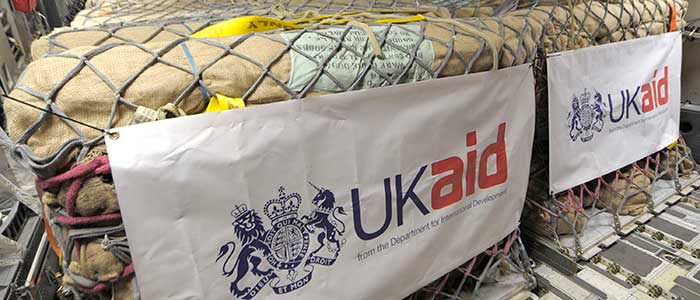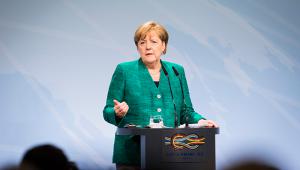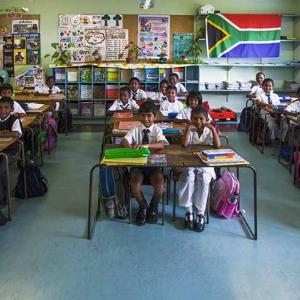Yesterday the UK government finally published their much-anticipated white paper on Brexit.
Amongst the political dramas of recent days, a few critical paragraphs of the white paper may go unnoticed by most.
But these paragraphs set out the UK’s expectations for our future aid relationship with the EU post-Brexit, and as such really matter for the millions of people around the world who benefit from UK and EU aid.
This matters.
It matters because at the moment, the UK sends more than 10% of its aid budget to the EU each year –£1.5bn in 2016.
And it matters because UK funding currently makes up 15% of EU aid.
With EU institutions the fourth largest donor globally, and the UK the third largest, what happens to the quality and quantity of spending of both institutions will have a real impact on development in some of the world’s poorest countries.
To take just one example, in 2015, thanks to EU funded programmes, 10.6 million children were enrolled in primary school.
One might have assumed that after Brexit, the £1.5bn of UK aid currently sent to the EU would be available for the UK’s bilateral programmes or other multilaterals such as the World Bank.
(It may be a little less than £1.5bn if Brexit lowers national income, to which aid is pegged by law, but we’ll assume it will be close to this level for the sake of argument).
However, the white paper makes it clear that the UK wants to continue channelling some aid through the EU in priority areas.
While this may sound counter-intuitive, there is a precedent in doing so from other non-EU members: Norway, for example, participated in 12 EU programmes in 2014.
The white paper identifies three priority areas for the EU and the UK to collaborate: migration, humanitarian and peace and security.
This list is based, quite sensibly, on areas in which the UK believes that they have a shared agenda with the EU, and which the EU can do things better than other potential partners.
The UK have also indicated that they won’t contribute funds unless UK organisations can also apply for grants or contracts, and the UK has ‘appropriate influence and oversight’.
So far, so good – although it is slightly alarming that, less than nine months before Brexit, there is as yet no indication of how much of the £1.5bn the UK intends to continue sending to the EU, or what will happen to the remaining funds.
Whatever the future aid partnership looks like, four key criteria must be met if those most reliant on EU and UK aid are not to lose out as a result of Brexit:
1. No reduction in the ODA/GNI ratio, for the UK and the EU.
EU member states should not reduce their Official Development Assistance because of the UK’s departure, or because the UK plans to continue contributing. Similarly, the UK should not use Brexit as a reason to renege on the 0.7% target.
2. No reduction in aid quality in the UK and the EU.
Any arrangements set up to allow the UK to continue to contribute to EU aid post-Brexit should not add extra burdens to the already complex EU aid budget. Specifically, the creation of new trust funds should be avoided as trust funds can undermine aid effectiveness: ODI research showed that trust funds can promote donor political agendas ahead of recipients.
3. No reduction in poverty focus of ODA in the UK and EU.
The UK currently has a strong voice in directing EU ODA to the poorest countries, particularly in sub-Saharan Africa. After Brexit, it is vital that the EU continues to maintain poverty focus without UK presence. Equally, the UK should only contribute ODA to the EU to support long-term poverty reduction, rather than short-term migration-related objectives such as border controls. Any funds that are remitted back to the UK should also be focused on poverty: targeted at Least Developed Countries (LDCs) and the global challenges that matter most for poor people; remaining untied in practice as well as policy; and meeting transparency standards as set out in the International Aid Transparency Initiative (IATI) and UK Aid Strategy.
4. Ensure that the UK only contributes to funds over which it has a meaningful say.
The white paper is correct to say that the UK should only continue to spend ODA through the EU if they can demonstrate appropriate oversight and influence. If the UK cannot achieve this without compromising aid effectiveness, they should instead spend funds bilaterally, through other institutions over which they do have a meaningful say, and/or collaborate with the EU in other ways, for example via the Alliance with the Sahel.
Brexit will remain dominant in UK politics and news, and no doubt it will continue to be contentious, with more than a few more dramas to come between now and March 2019.
But the impact Brexit could have on recipients of EU aid must not be forgotten, and poor people in developing countries should not be the losers. This is surely one thing that everyone – Brexiters and Remainers alike – should be able to agree on.














